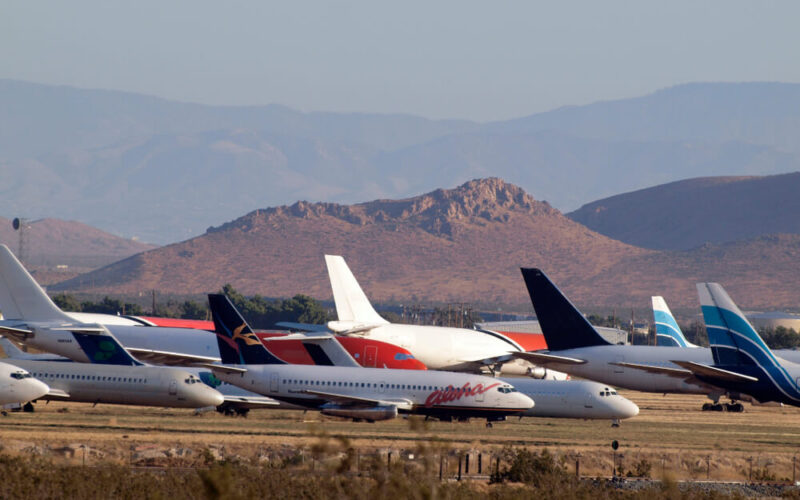As the coronavirus pandemic spread out throughout the world and governments had imposed travel restrictions to limit the spread of the virus, aviation was one of the worst-hit industries. Airlines relied on travelers paying for their tickets – if governments said no no no to travel, carriers’ cash reserves are being drained as passengers are not allowed or too unconfident to board an aircraft.
The crisis is truly unprecedented. While earlier it could have been compared to the post 9/11 shock or the slump following the 2008 financial crisis, now it is becoming clear as crystal that the coronacrisis is truly a one-of-a-kind event in aviation’s history. Airlines are pleading their home governments to provide emergency loans to ensure their liquidity: some were doing relatively okay in terms of cash reserves; others were already on their knees prior to the current events.
And nobody was spared, no matter how big or small the airline was. From British Airways’ 12,000 job cuts to Icelandair making 2,000 employees redundant, the industry is forced to shrink in order to come out of the crisis alive and relatively okay. International Air Transport Association (IATA) noted that global demand for air travel dropped by 52.9% in March 2020 compared to the same month last year.
The outlook, for now, is truly grim. But there might be a glimmer of hope in the short-term future for those that survive the crisis.
Overwhelming supply and no demand
Before the world went into lockdown, aircraft manufacturers were happily churning out aircraft left and right. Now, Airbus and Boeing are looking to significantly reduce their supply of aircraft into the market, as airlines are more than hesitant to place new orders. Airbus alone has 60 aircraft that customers do not want to take up, despite them being built, and was forced to sell off AirAsia’s unwanted aircraft.
All in all, both manufacturers are looking at a 48% reduction in aircraft production in 2020, concluded a study by the consulting firm Oliver Wyman.
Airlines are retiring their aircraft on a scale like never before as behemoths like the Airbus A380 or the Boeing 747 are being put to their deathbeds in deserts and storage facilities around the world. But the smaller and older narrow-body aircraft are also being retired, including the Airbus A320 and Boeing 737 family. For example, Austrian Airlines is retiring its A319 fleet of seven aircraft as it does not see demand returning to normal levels until 2023.
The combination of oversupply of aircraft and non-existent demand for air travel resulted in 16,300 parked aircraft as of April 30, 2020, according to Cirium data.
Cheapening leases
As airlines look to get rid of aircraft, currently, there is no other company lining up to take up any second-hand aircraft after a re-delivery check. Aircraft leasing companies are looking to be left empty-handed as leasing agreements come up to their termination date. However, that is not the only worry.
Virgin Australia entered voluntary administration on April 20, 2020. The Australian airline owes more than $4.5 billion (AUD7 billion). Out of the sum, aircraft lessors are owned $1.2 billion (AUD1.9 billion). But as the airline looks to continue operations, administration will help renegotiate leases and make further inroads in its quest to cut costs. Lessors have no clients and have nowhere to park their aircraft, an advisor to leasing companies told the Sydney Morning Herald, meaning Virgin Australia can get much better terms on its leases.
“The lessors have no leverage.”
The times of crisis can help create something out of nothing. While a general sense of pessimism surrounds the recovery of the industry, as air travel is predicted to return to 2019 levels only in 2023-2024, taking a risk now could bear fruit much later. Case in point could be the rise of low-cost carriers in Europe after they pounced on the aftershock of the early-2000s and ordered aircraft dirt cheap and grew their market share substantially during the 2008 financial crisis when full-service carriers were hit in the face with ballooning fuel costs.
Yet some airlines are not very happy. Aircraft, Crew, Maintenance and Insurance (ACMI) operators are now brushed to the side. If airlines do not need the extra capacity that these companies provide and acquiring aircraft on brilliant terms is easy, could that mean a huge drop in demand for ACMI services in post-corona aviation?

